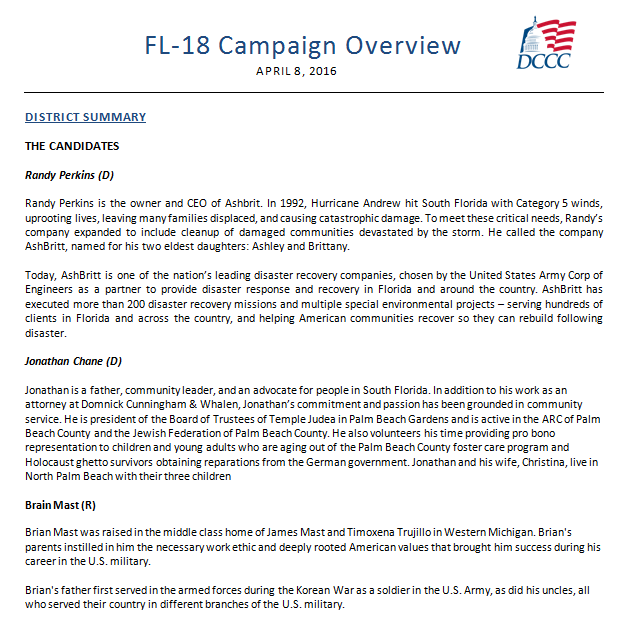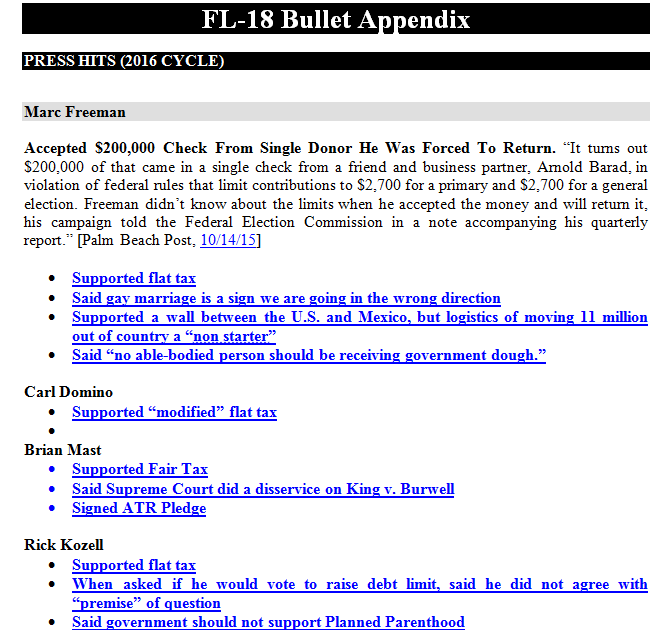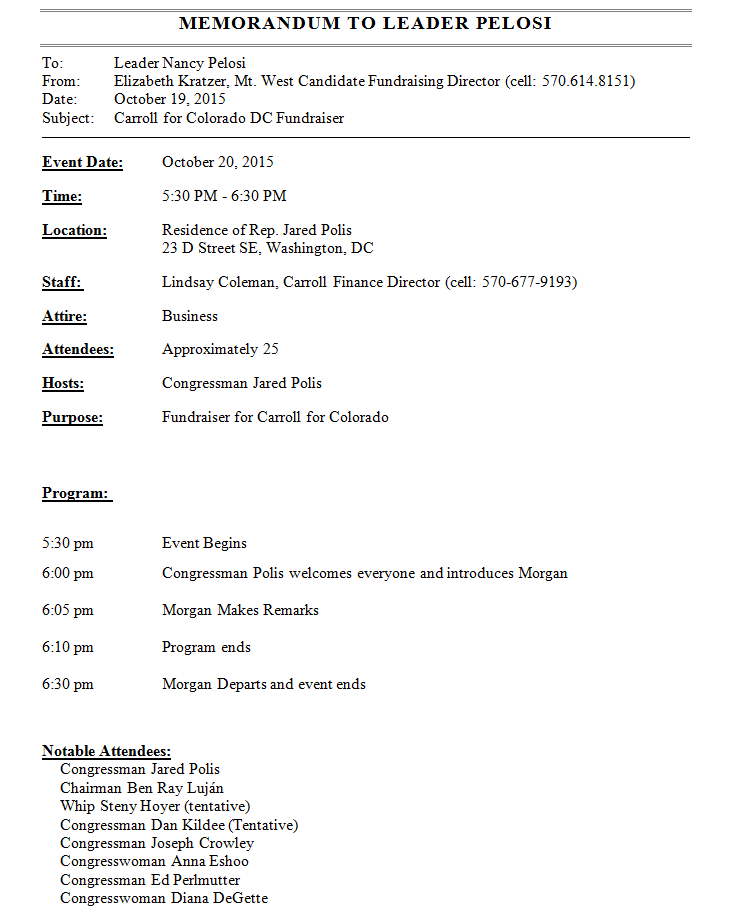Hillary Clinton’s Probable Diagnosis
(Download the PDF here, share with doctors for their opinion.)
Intro:
Hillary Clinton (HRC) has suffered a variety of health issues. Unfortunately, she has declined to make her medical records public. In July of 2015 her personal physician released a letter asserting her “excellent physical condition.” Unfortunately, multiple later episodes recorded on video strongly suggest that the content of the letter is incorrect. This discussion is designed to sort through the known facts and propose a possible medical explanation for these events. In keeping with Occam’s Razor, a single explanation that covers everything is preferred.
History of Hillary’s Health:
- In 2009, HRC fell and broke her elbow. Little else was made public.[i]
- On December 17, 2012, while Secretary of State, HRC fell and suffered a concussion.[ii] Later, a transverse sinus thrombosis was diagnosed, resulting in chronic anticoagulation therapy. [iii] Her post-concussion syndrome was declared “recovered” in about six months.[iv] The original fall was publicly attributed to dehydration following gastroenteritis.
- An email from Huma Abedin (HRC’s closest advisor) on January 26, 2013, says that HRC “is often confused.”[v]
- Photos show being assisted up what appears to be the steps of a residential porch. This apparently happened in February of 2016. On August 4, 2016, Reuters and Getty published the photos.[vi]
- At a rally on May 2, 2016, HRC demonstrates classic PD hand posturing.[vii]She has no lectern in front, so she starts with her right hand pressed against her chest. At the 18:02 mark, she starts gesturing with her right hand, which is in a very unnatural position that is common in PD.
- On July 21, 2016 HRC was filmed talking to reporters at close range when several spoke at once. Without warning,she started a bizarre head-bobbing episodethat must be seen rather than described. After several cycles, she regained control and declared that the reporters “must try the iced chai.”[viii]
- On July 28, 2016, during the balloon drop, HRC suddenly looks up with a frozen wide-mouth and wide-eyed stare. After a couple of seconds she regains control and a more normal expression.[ix]
- On August 5, HRC declared that she had “short circuited”[x] a response to Chris Wallace in an interview that aired July 31 on Fox News Sunday.[xi]
- August 6, 2016, at a campaign rally, HRC freezes with wide eyes in response to protestors. A large black male who commonly accompanies her leans in and tells her “It’s OK. We’re not going anywhere. Keep talking…” Shortly after, she laughs strangely and then says “OK. Here we are. We’ll keep talking.”[xii]
- Several recent photos show HRC with an inappropriately exaggerated wide-mouthed smile and extreme wide-open eyes. Several videos show her laughing inappropriately and for extended periods. Numerous events have been interrupted by prolonged episodes of coughing unrelated to any infectious cause.
- This discussion will notargue that the black male is carrying a diazepam injector, since there is a plausible argument that it is actually a small flashlight, and is seen in other video to be such. We will also not discuss the circular area on her tongue. It appears to be the site of a mass excision. Benign explanations that do not bear on chronic health issues may easily be proffered.
Discussion:
The HRC campaign meme is that “there’s nothing to see here.”
But numerous trained observers have noted multiple other, more subtle bits that strongly support the argument below.
After the 2012 fall, HRC had post-concussion syndrome (PCS). She should have declared herself unable to fulfill her duties as Secretary of State. Her resignation from the position shortly thereafter may have satisfied this need without public medical discussion. If no other questionable medical signs had appeared, this discussion would end here. But the other events and signs point to a single cause for the fall, and it is not the public explanation. Further, HRC’s statement early in her tenure as Secretary of State that she would serve only four years can be read in the context of a progressive disease that was known as she assumed the post.
It is the premise of this discussion the HRC is most likely suffering from Parkinson’s Disease (PD).
It explains every one of the items listed above. Further, since it is a diagnosis primarily made by observation, the video record is sufficient to create a high degree of certainty.
The 2009 fall where HRC broke her elbow suggests that she had working protective reflexes, and her arm took the brunt of the fall. But three years later, she had a catastrophic fall where her reflexes were unable to help her. It is notable that this fall took place at home, where she would have been unstressed and in a familiar setting. Failing reflexes are common in PD. Poor balance is also common in PD, and a fall without working protective reflexes is a prescription for head injury. Her subsequent concerns with transverse sinus thrombosis are plausibly related to the fall. Her need for fresnel lens glasses also fits with post-concussion syndrome.
Huma Abedin’s email comment can be referring to PCS as well, since it was during the six-month period of rehab. One must, however, be cautious not to overlook persistent cognitive problems that PCS can have. (Editorial note: The reader will note that this discussion is giving the benefit of the doubt to as many HRC memes as can reasonably earn it.)
2016 starts a spate of new data. The photos of HRC being helped up the steps is consistent with a fall similar to 2012, but with a security detail close enough to catch her before she fell to the ground. This matches the loss of reflexes and balance with PD.
On July 21 a video of HRC is posted that has many observers calling a “seizure.”
We should note the setting. She is answering questions, and then multiple reporters call out at the same time. Such a shock is often too much stress for a PD patient, and the patient suffers an “on/off” episode. Higher control turns off and an unpredictable dyskinesia takes over. Shortly she switches back “on” and regains control. Her mind froze during the “off” state, but was aware, so she is able to speak again, but inappropriately.
It should be noted that such dyskinesias are sufficiently common with long term treatment that they have a name: Parkinson’s Disease LevoDopa Induced Dyskinesia (PD LID).
A week later, during the balloon drop at the Convention, HRC suddenly “freezes.” This is an “off” moment manifested by bradykinesia, another PD problem. The particular form is a brief oculogyric crisis, complete with head arched back, fixed gaze, and wide open mouth. Again, this is common in PD. We should compare it to HRC’s facial expressions on “Live with Kelly and Michael” on November 19, 2015.[xiii] At 6:30 in that video, we also see a PD tremor and posture in her left hand when it comes to rest momentarily. In most videos her hands are in constant motion or clasped against some object. These are strategies to suppress a tremor.
HRC’s description of her false answers to Chris Wallace as a “short circuit” is extremely unusual.
It comes from the field of electronics, in which HRC has never been involved. The Urban Dictionary definition is electrical, and there is no popular or slang usage. But one semi-technical description of PD calls it “short-circuiting” brain circuits.[xiv] Did she hear this during a doctor’s explanation of her disease? It would not be unusual to parrot such a phrase if she has PD.
Days later, HRC “freezes” again at a campaign rally. This “off” state is like the others, triggered by a startle/stress reaction. But what is more telling is that the security detail gives her specific instructions in an attempt to get her to turn “on” again. She then parrots those exact words as she restarts. This is another PD sign.
The numerous episodes of prolonged coughing are another tell. Swallowing disorders are very common in PD. They can lead to aspiration pneumonia, the most common cause of death in PD. But before that they lead to chronic difficulty swallowing saliva. It gets onto the vocal cords, leading to coughing in an attempt to clear them. The high frequency of these episodes strongly suggests a major swallowing disorder.
Multiple episodes of inappropriate and extended laughter have also been documented. This, again, is common in PD.
We do not have video evidence of the “pill rolling” tremor that is common in PD. But that is not a major concern for our thesis. Treatment with levodopa can reduce it. Also, PD sufferers develop a variety of techniques to hide it. Since it is a tremor at rest, keeping the hands in motion suppresses it. Grasping objects such as a lectern can also hide it. As long as the hands are busy, it is usually not visible.
Summary:
HRC probably has PD.
She has had clinical symptoms for a minimum of 4 years, and probably much longer, given that the fall leading to her head injury required a significant progression of the disease. All of her bizarre physical actions since that time fit nicely into the spectrum of signs that we expect in PD. And since PD explains all of them, we have a high probability of a correct diagnosis. It has almost certainly been treated with levodopa. Some of her symptoms may be related to this drug treatment.
It is most curious that all of the bizarre physical signs seem to be in 2016 videos. HRC was a public figure in 2015, with a lot of campaign work underway. Yet all of the oddities seem to be within the last several months. This suggests a significant progression of her PD. We also know that her contact with the public has been rigidly controlled. She has not done news conferences during the campaign. These would be highly stressful to a PD sufferer and would elicit many PD signs.
PD is a chronic disease with a downhill prognosis. HRC’s instability and frequent cough suggest that her PD is advanced. This is not a good outlook for someone running for the Presidency. The office of the President is one of the highest stress jobs in the world. Stress sets off PD episodes, which render the sufferer incapable of proper response.
At this point, a bit of speculation seems appropriate. HRC talks about her yoga sessions. But no one we know of has ever documented one. It is possible that this is cover for sessions designed to teach her coping mechanisms for PD or for rest breaks. Exhaustion makes PD worse.
HRC’s coughing suggests that her swallowing disorder is advanced, placing her closer to an aspiration pneumonia that would disable or kill her. That’s bad enough, but PD has one more, even more dangerous step in its progression.
As PD continues, cognitive problems can develop. In time, they become full-blown dementia. The United States cannot survive if its President is mentally impaired.
Conclusion:
It is not appropriate for a physician to make a diagnosis at a distance. But since the evidence in the public record so strongly suggests that HRC has moderate to advanced PD, it is imperative that HRC release her complete medical record to an impartial panel of physicians for review. It is not necessary for the public at large to see them. Such a panel should be secure in its deliberations and should present a summary to the public. If she has PD, the panel would know and it would be made public. If not, then the air would clear.
Note on authorship:
The author of this document is a board-certified Anesthesiologist with 36 years of experience. That brings with it the ability to understand medical discussions, but not the expertise to evaluate PD signs and symptoms.
The first subject matter expert is a close friend of the author. This person is a brilliant businessman who was forced to sell his interest in eight successful businesses because early onset PD made him unable to continue in the daily duties of business. He is well versed in PD and sees its ravages in himself.
The second subject matter expert is the author’s brother. He is an RN who spent two years working 12-hour shifts caring for PD patients in a nursing home. This saturation experience allows him to pick up PD signs automatically. He notes that he called HRC’s PD and levodopa therapy when he watched the famous “What difference does it make?” exchange. Her mannerisms and behavior were classic and stereotypical.
Of interest is that during a teleconference, the author called the others to look at HRC’s left hand during the “Live With Kelly and Michael” video. The clip was played, and neither of the others evensaw her hand. They were both riveted to her eyes, and both exclaimed that her eyes were “classic PD.” The clip had to be played a second and third time before they could even take their gaze away from her eyes. They did finally see her hand and agree that it was also demonstrating PD.
[i]http://blogs.wsj.com/washwire/2009/06/18/hillary-clinton-faces-surgery-for-broken-elbow/
[ii]http://www.nydailynews.com/news/national/hillary-clinton-treated-concussion-fall-article-1.1220947
[iii]https://www.washingtonpost.com/national/health-science/hillary-clintons-blood-clot-most-likely-in-a-leg-experts-say/2012/12/31/d2c853ea-5376-11e2-bf3e-76c0a789346f_story.html
[iv]http://abcnews.go.com/blogs/politics/2014/05/hillary-clinton-took-6-months-to-get-over-concussion-bill-says-of-timeline/
[v]http://www.dailymail.co.uk/news/article-3320900/Newly-released-email-shows-aide-Huma-Abedin-warned-colleagues-Hillary-confused-needed-hand-holding-calls-foreign-leaders.html
[vi]http://www.breitbart.com/2016-presidential-race/2016/08/07/hillary-clinton-needs-help-getting-stairs/
[vii]https://youtu.be/jkOUwIHUIgo
[viii]http://thehill.com/blogs/ballot-box/presidential-races/283066-clinton-acts-startled-when-reporters-ask-about-warren-as
[ix]http://www.belfasttelegraph.co.uk/video-news/watch-hillary-clintons-amazing-reaction-to-the-dnc-balloon-drop-34922354.html
[x]http://www.cnn.com/2016/08/05/politics/hillary-clinton-attacks-donald-trump-journalism/
[xi]http://www.realclearpolitics.com/video/2016/07/31/full_interview_hillary_clinton_on_fox_news_sunday.html
[xii]http://thelastgreatstand.com/2016/08/07/hillary-clinton-freezes-fear-secret-agents-says-keep-talking-video/
[xiii]https://youtu.be/OKUi0sd1Ocg
[xiv] Rodgers, R, PhD, Road to Recovery from Parkinson’s Disease, ISBN 978-0-9819767-5-4, 2013, p. 94.









